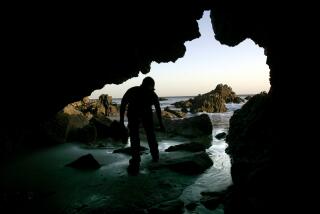Proposed Fees to Balance Budget May Spoil Picnics : Revenue: Lawmakers are weighing a diverse menu of potential increases, including higher charges for park users and university students.
SACRAMENTO — If you are a camper, you may be asked to shell out $30 to stay overnight in a state park. Or pay $9 for a daytime picnic spot.
If you want a copy of your birth certificate from the state, a charge of $15 may await you.
Or, if you have a home, barn or other building on state-owned wild lands, a new $12.50 yearly fee per structure for fire protection may be in your future.
Likewise, if you are a University of California or state university student, drinking-water provider, pesticide producer or mentally retarded Californian, new or higher levies might be heading your way.
This smorgasbord of potential revenue hikes--some in the form of taxes, some as new or increased fees--has been offered up by Democratic and Republican legislators and their nonpartisan financial adviser as possible ways to help close the record $3.6-billion state budget gap.
In varying forms, Senate leader David A. Roberti (D-Los Angeles), Senate Republican floor leader Ken Maddy of Fresno and Assemblyman Phillip Isenberg (D-Sacramento) have separately advanced long lists of levies that could be increased or imposed for the first time.
Legislative Analyst Elizabeth G. Hill, whose office is nonpartisan, came up with her own list of programs that could be freed of support from general taxpayers and become entirely self-supporting.
In seeking to balance the $56-billion budget, Gov. George Deukmejian and legislative leaders reached an impasse Wednesday, but agreed to restart negotiations Monday, one day after start of the new fiscal year.
Unlike Deukmejian’s first budget in 1983, which contained $450 million in similar revenue increases to achieve a balance, the current financial situation is far more serious. To what extent Deukmejian and legislative leaders will agree to enact new or increase old sources of revenues is far from decided.
Hill, while stressing she is not recommending enactment of all the revenue sources she listed, offered about $393 million worth of “options” to the Legislature.
She said she tried to give legislators a broad range of alternatives for consideration. However, she stressed that some “severe” options would not be in the “best long-term interest of the state.”
One drastic option she advanced would close some or all components of California’s prized state parks system and make $74.5 million available to balance the budget, Hill said.
As an alternative, she advanced a whopping 200% increase in fees paid by state parks users. But she warned that tripling fees would likely cut back attendance and ultimately demand renewed support from taxpayers “to backfill for reduced visitation.”
Under the proposal, fees for picnic sites and other day use would generally increase from $3 to $9, overnight campsites from $10 to $30, recreational vehicle sites with full hookups from $16 to $48, and group campsites from $30 and $150 a night to $90 and $450.
Users of state parks in the South Coast area already pay slightly higher fees than those charged in other parts of the state and would pay proportionately higher fees. Park fees last were increased statewide in 1987.
Another option, Hill said, would be to establish an ability-to-pay test for mentally retarded Californians and their families who receive free diagnostic and treatment services from 21 regional centers statewide. This could raise $38 million.
Hill also suggested that general tax dollars to support regulation of the pesticide industry could be eliminated if current taxes paid by pesticide producers and distributors were increased by $25 million.
Likewise, she proposed extending to all fruits, vegetables, nuts and field crops the fees now imposed on certain commodities for research and promotional activities. The resulting $15.2 million would be earmarked for pest detection and eradication, such as the Southern California Medfly project.
More to Read
Get the L.A. Times Politics newsletter
Deeply reported insights into legislation, politics and policy from Sacramento, Washington and beyond. In your inbox three times per week.
You may occasionally receive promotional content from the Los Angeles Times.










